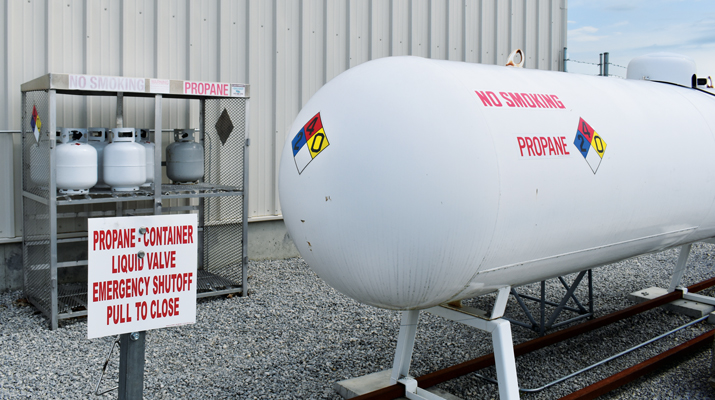Safe operations rewarded by insurance providers
Propane marketers who take a proactive approach in their daily processes will create a safer working environment for employees and customers, but they also may realize favorable outcomes from their insurance providers.
Here are some action items that may impact a marketer’s standing with its insurance company. This list isn’t all-encompassing and only reflects the points made by one insurance company leader in a conversation with LP Gas.
Follow the code. That means NFPA 58 and NFPA 54 as well as Federal Motor Carrier Safety Administration and Occupational Safety and Health Administration regulations.
Make training top of mind. COVID-19 kickstarted a move to more online training. While the Propane Education & Research Council (PERC) offers Certified Employee Training Program (CETP) courses in textbook and e-learning formats, it’s imperative that companies test their employees’ knowledge through a required skills assessment. Combining classroom and hands-on training verifies that employees understand the job function, and refresher training helps employees sharpen their skills. The CETP courses cover the basic principles of the propane industry, but marketers and their employees can benefit from so many more courses in the program. These include vapor distribution systems, placing appliances back into operation, cylinder requalification and plant operations.
Make documentation a regular action. The quality of a marketer’s documentation – whether with gas checks, odorant detection, work orders or lease agreements – will go a long way in a claim. Marketers should record in detail the steps taken during a new installation or service work. Inconsistencies in how a company documents its processes can be a red flag to an insurer.
Use your resources. Marketers should know the resources available to them. PERC offers safety and training materials, including brochures that benefit certain types of customers (e.g., those who own underground tanks, reside in high snowfall areas or are prone to certain types of natural disasters). Sharing brochures with customers is one way marketers can be proactive. To access these resources, visit propane.com.
Respond correctly in out-of-gas situations. It’s important for propane marketers to have proper procedures in place to limit their liability when a tank runs empty. Failing to perform a leak check in an out-of-gas situation becomes problematic in an incident.
Consider tank monitors. Monitors are advantageous for delivery efficiencies, but they also help prevent out-of-gas situations. Some of the monitors also detect issues with a propane system.
Consider dashcams. This technology is becoming a major benefit from the safety and liability side because it can improve driving behavior but also defend companies whose drivers are not at fault in an incident.
Self-audit periodically. It’s important for marketers to think about how they’re doing across their operations – and to learn from any mistakes they make along the way.

















